Fourteenth International Conference on Urban Transport and the Environment in the 21st Century
![]() 1 - 3 September 2008
1 - 3 September 2008
Malta
Overview
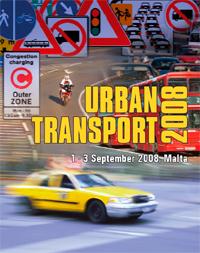 The 14th International Conference on Urban Transport and the Environment in the 21st Century has recently taken place on the historical island of Malta, organised by the Wessex Institute of Technology of the UK (WIT), and with the collaboration of the Ministry of Infrastructure, Transport and Communications of Malta.
The 14th International Conference on Urban Transport and the Environment in the 21st Century has recently taken place on the historical island of Malta, organised by the Wessex Institute of Technology of the UK (WIT), and with the collaboration of the Ministry of Infrastructure, Transport and Communications of Malta.
The Conference has always attracted a substantial number of delegates from all over the world and is now the premier event of its type. It started in Southampton (1995); followed by Barcelona (1996); Aquasparta, Italy (1997); Lisbon (1998); Rhodes (1999); Cambridge, UK (2000); Lemnos, Greece (2001); Seville (2002); Crete (2003); Dresden (2004); the Algarve (2005); Prague (2006); and Coimbra (2007).
The success of the Conference is driven by the considerable amount of research taking place in the field of transportation in cities. The quest for better urban transportation systems and a healthier environment is reflected in the papers presented at the Meeting.
Opening Address
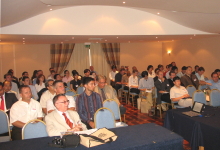 The delegates were welcomed by the representative of the Ministry of Infrastructure, Transport and Communications of Malta, Mr Simon Gatt, who discussed the policy of the island for public transport. The government of Malta has successfully spearheaded a number of urban regeneration projects in the two main harbours since the late 1990s, initially in the Valetta Cruise Liner Terminal; the Cottonera Waterfront Development and the Manoel Island and Tigre Point Redevelopments.
The delegates were welcomed by the representative of the Ministry of Infrastructure, Transport and Communications of Malta, Mr Simon Gatt, who discussed the policy of the island for public transport. The government of Malta has successfully spearheaded a number of urban regeneration projects in the two main harbours since the late 1990s, initially in the Valetta Cruise Liner Terminal; the Cottonera Waterfront Development and the Manoel Island and Tigre Point Redevelopments. In order to bring these projects to fruition, the Government has adopted a policy as part of its national operational framework known as ‘Transient Oriented Development’ which has been produced after considering international operational practice and applying the results within the local Maltese context.
The Transient Oriented Development approach is seen as a flexible tool, applied locally to create synergy between all the major capital projects in Malta with land transport, whilst reshaping urban and suburban neighbourhoods, communities and ultimately making the local economy sustainable.
Professor Carlos Brebbia, Director of WIT, then thanked the keynote speaker from the Ministry for his opening remarks and for the Government of Malta’s support of the Meeting.
Professor Brebbia explained the importance of conferences such as Urban Transport to the work carried out by his Institute, whose main function is the transfer of knowledge at an international level. This is achieved through a series of training activities, as well as by post-graduate training at MPhil and PhD degree. Most research at WIT takes place with the support of national and international organisations and as part of research consortia.
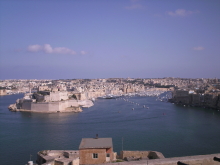 WIT, Professor Brebbia said, also has two important areas of activities closely associated with its main function, the transfer of knowledge. One is the publication of books and journals in paper and electronic form. WIT has recently developed an Electronic Library which offers the international community the possibility of immediate access to valuable research material, such as conference papers, which are now available on the Web. Another important activity is industrial support that the Institute carries out through long term industrial research projects and by the services of a special unit which distributes computer codes and consulting support for different firms world wide.
WIT, Professor Brebbia said, also has two important areas of activities closely associated with its main function, the transfer of knowledge. One is the publication of books and journals in paper and electronic form. WIT has recently developed an Electronic Library which offers the international community the possibility of immediate access to valuable research material, such as conference papers, which are now available on the Web. Another important activity is industrial support that the Institute carries out through long term industrial research projects and by the services of a special unit which distributes computer codes and consulting support for different firms world wide. Professor Brebbia ended his remarks by inviting the delegates to visit the Institute when they are in London or in the New Forest/Southampton region. WIT is always happy to receive friends and visitors to its newly renovated campus so that members of the community can arrive at a better understanding of WIT’s objectives.
Keynote Address
- “Advanced bus transit systems – “best practice” mobility solutions for emerging agglomerations” by G Mattrisch, Daimler Research, Germany
- “Modelling of route choice behaviours of car-drivers under imperfect information” by T Miyagi, Toboku University, Japan
Conference Sessions
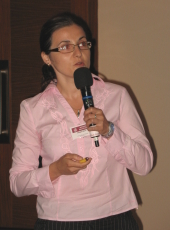 The papers were grouped into the following sessions:
The papers were grouped into the following sessions: - Transport planning and management
- Public transport systems
- Intermodal transport systems
- Intelligent transport systems
- Transport modelling and simulation
- Land use and transport integration
- Transport planning and management
- Environmental and ecological considerations
- Transport technology
- Road Pricing
- Safety issues
- Transport sustainability
Special Session - Safety of users in road evacuation
A special session was organised by Professor F. Russo and G. Mussolino from the University of Reggio Calabria on the topic of Safety of users in road evacuation. The session consisted of five invited presentations as follows, all but one from the University of Calabria:- “Safety of users in road evacuation: RP vs. SP surveys in demand analysis”, by F Russo
- “Safety of users in road evacuation: calibration of cost functions and simulations” by G Musolino
- “Safety of users in road evacuation: algorithms for path design of emergency vehicles” by A Vitetta
- “Safety of users in road evacuation: some enhancement in modelling pedestrian evacuation of a building” by M di Gangi, University of Basilicata, Italy
- “Safety of users in road evacuation: the logical framework approach in evacuation planning” by C Rindone.
International Scientific Advisory Committee
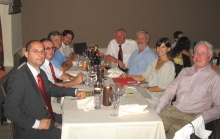 The Meeting of the International Scientific Advisory Committee took place over dinner in an excellent restaurant offering local specialities as well as international cuisine. The discussions centred on the objectives of the Conference when reconvened in 2010. The discussions resulted in a new and up to date list of topics emphasising aspects such as intermodality, ecological and environmental aspects, applications of advanced technologies and intelligent systems.
The Meeting of the International Scientific Advisory Committee took place over dinner in an excellent restaurant offering local specialities as well as international cuisine. The discussions centred on the objectives of the Conference when reconvened in 2010. The discussions resulted in a new and up to date list of topics emphasising aspects such as intermodality, ecological and environmental aspects, applications of advanced technologies and intelligent systems.
Conference Banquet
The Conference banquet took place on board a ship sailing into the Grand Harbour which offers one of the most beautiful sights of Malta at night. Dinner and drinks on board added to the friendly atmosphere. On arrival at the Grand Harbour, the delegates were given a guided tour of the old city with an explanation of the history behind each of the heritage buildings which are a unique feature of Malta. Many of them date from the time when the Knights of St. John were in charge of what was a fortress to control the Mediterranean. After the visit, the delegates were taken back to the hotel, thus concluding a beautiful excursion.
Technical Excursion
At the end of the Conference, the participants were offered a Technical Visit by the Projects Development and Coordination Unit of the Ministry of Infrastructure, Transport and Communication of Malta. The visit described the application of the Transient Oriented Development (TOD) policy for Malta, a new initiative to deal with the urban mobility problems on the island.
The delegates were also shown some urban regeneration projects, the places earmarked for development and their integration with sustainable transport. They had occasion to see the Valletta transport accessibility strategy which includes the use of electric minicabs, Park and Ride services and a Controlled Vehicular Access (CVA) area to relieve the number of cars in the City. Specific TOD based transport projects comprise a vertical connection to provide greater access between Valletta’s waterfront and the upper heart of the City and a responsive bus service to a major redevelopment area called the Cottonera (old cotton warehouses).
The Smart City Technology Park is a new major initiative to create a Smart City as the result of the regeneration of a brownfield space into a state of the art IT hub. Smart City will be the largest ever foreign direct investment in its field made in Malta and will generate new jobs for the community.
The site visit was conducted by Ministerial officials who gave a comprehensive description of how the concept of TOD was being applied to Malta and highlighted the sites of regeneration and new transport operations.
The success of the Conference will ensure that it continues to be held for the foreseeable future.
Publication of Papers
The proceedings of Urban Transport XIV: Urban Transport and the Environment in the 21st Century, 784pp (ISBN: 1-84564-123-8) are available in hard back from WIT Press priced at £258/US$516/€387. Orders can be placed by telephone: +44 (0) 238 029 3223, fax: +44 (0) 238 029 2853, e-mail:
Papers from the conference will also be hosted online in the WIT eLibrary as volume 101 of WIT Transactions on the Built Environment (ISSN: 1743-3509). For more details visit the WIT eLibrary at www.witpress.com


 Wessex Institute
Wessex Institute